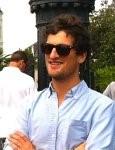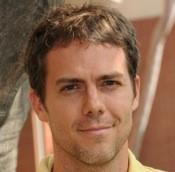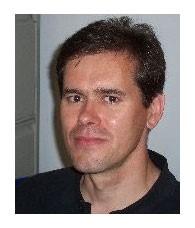Wednesday, July 22, 2015
2:30-3:00pm WATERFRONT ORIENTATION
4:30-4:45pm WRIGLEY HOUSING ORIENTATION/CHECK IN
6:00-7:00pm DINNER
7:00-7:30pm Welcome and Introductions: Wendy Wood
7:30pm Graduate Student Poster Session:
Inna Arnaudova, “Effects of Negative Mood on Pavlovian-to-Instrumental Transfer”
Stephanie Chen, “Understanding How Scarcity Influences Habits”
Lucas Carden, “To Try or Not To Try: How the Willpower Bias Hinders Habit Performance”
Adam Crego, “Exploring the Temporal Structure of Habits Using Optogenetics”
Theresa McKim, “The transition to habitual behavior is dependent upon stress timing of the socially evaluated cold pressor and gender in healthy controls”
Tara Patterson, “Influence of distraction on the partial reinforcement extinction effect in individuals with a history of early-life stress”
Poppy Watson, “Cue-elicited food seeking behavior and obesity”
Thursday, July 23, 2015
7:30-8:30am BREAKFAST
8:30-9:00am WATERFRONT ORIETATION
9:00-12:00pm FREE TIME
12:00-1:00pm LUNCH
1:00-1:30pm Carol A. Seger
“What are habits, what do they have to do with the basal ganglia, and why does it matter?”
1:30-2:00pm Barbara Knowlton
“Corticostriatal loops for habits and actions”
2:00-2:30pm Sanne de Wit
“Insights into habit from experimental outcome-devaluation studies”
2:30-3:00pm BREAK
3:00-3:30pm Blair T. Johnson
“Habit in Relation to the Theory of Planned Behavior: A Meta-Analysis of the Exercise Literature”
3:30-4:00pm Jen Labrecque
“Sticky habits: How associations and inferences impede change”
4:00-4:30pm Ross Otto
“Probing the Correspondence between Executive Function and Reinforcement Learning”
4:30-5:00pm David Neal
“Habits in the wild: Applications of habit thinking in health and consumer consulting”
6:00-7:00pm DINNER
Friday, July 24, 2015
7:30-8:30am BREAKFAST
8:30-9:00am John O’Doherty
“The role of ventrolateral prefrontal cortex in arbitration of model-based and model-free reinforcement-learning: from fMRI to causal manipulations”
9:00-9:30am John Monterosso
“Neuroscience of addiction: How far do we get by distinguishing model-free and model-based motivation systems?”
9:30-10:00am Kyle Smith
“Real Time Measurement and Manipulation of Habits in the Rodent Brain”
10:00-10:30am BREAK
10:30-11:00am Pamela Rackow
“Receiving emotional social support helps to engage in self-set exercise-goals”
11:00-11:30am Gaby Judah
“The role of perceived rewards in habit-formation: the example of vitamin adherence”
12:00-1:00pm LUNCH
1:00-6:00pm FREE TIME
6:00-7:00pm DINNER
7:00-7:30pm Barbara Mullan
“The Daily Rate of Habit Formation is Not Dependent on Number of Assessments”
7:30-8:00pm Sheina Orbell
“Creating and Breaking Habits”
Saturday, July 25, 2015
7:30-8:30am BREAKFAST
8:30am-12:00pm FREE TIME
12:00-1:00pm LUNCH
1:00-1:30pm Rick Cooper
“Modulating the Habit System: A Computational Account”
1:30-2:00pm Bas Verplanken
“Moments of change: A test of the habit discontinuity hypothesis”
2:00-2:30pm Juliana Schroeder
“From Ritual to Habitual: The Utility of Rituals for Shaping Goal-Consistent Habitual Behavior”
2:30-3:00pm Benjamin Gardner
‘Habitual instigation vs habitual execution: delineating two types of habitual behaviour’
3:00-3:30pm BREAK
3:30-4:00pm Aimee Drolet
“Habits and Aging”
4:00-4:30pm Samantha Heintzelman
“Habits and Routines as Sources of Meaning in Life”
4:30-6:00pm Wrap Up
6:00-7:00pm DINNER
Sunday, July 26, 2015
7:30-8:30am BREAKFAST
8:30am on FREE TIME





















